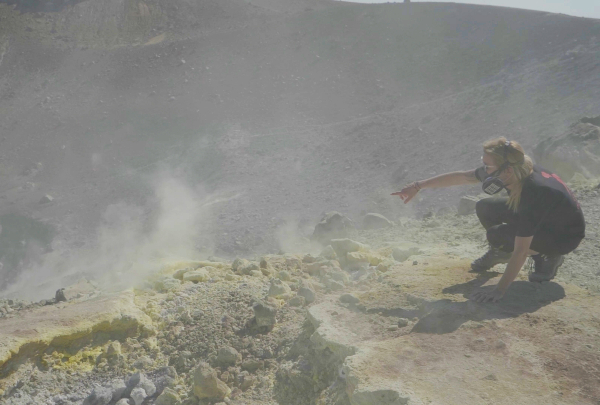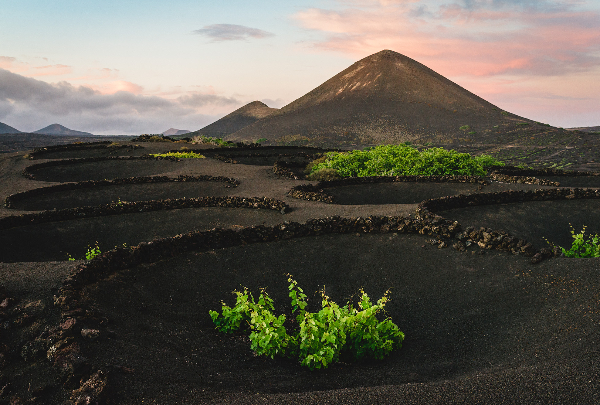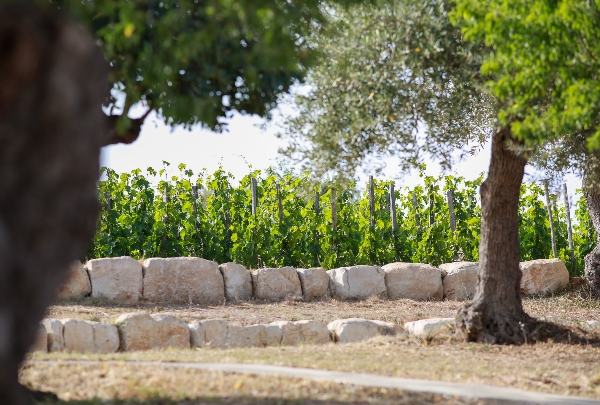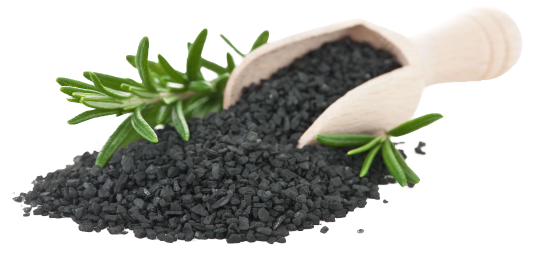Interview
Anne Fornier: “Knowledge of volcanoes can help us mitigate their effects"

Anne Fornier is a specialist who has been working with active volcanoes all over the world.
This led her to create a foundation to raise awareness among the population of the effects of volcano eruptions, solutions for the consequences, or the importance of preserving biodiversity and ecosystems in these volcanic territories.
Tell us about Volcano Active Foundation.
We're the world's only foundation working on resilience, mitigation, prevention and education on volcano risk. Our work concerns everything in relation to volcanic territories in general. Understanding how a volcano functions, or ways of reducing the impact of a volcano eruption, or, even if it hasn't erupted, mitigating the effects of an active volcano. Some of the effects, for example, are the emission of gases that can pollute water, and so lead to illnesses. We take action to prevent those situations. We inform and educate the population. In this case, we would inform them that the water can't be used as drinking water, among other aspects.
We also take action to preserve biodiversity in volcanic areas, and to safeguard non-material and cultural heritage in volcanic areas.
We work on three levels. Volcano Active Foundation (https://volcanofoundation.org) addresses mitigation, support for local scientists, and training. At the Volcano School (https://volcanoschool.org) we not only provide education on volcanoes, but also on their entire ecosystem (local, national and international). And Volcano Care (https://volcanocare.com) works to preserve the biodiversity and cultural heritage of volcanic areas. This includes a project in Colombia where the indigenous population has been expropriated and relocate because they lived near a volcano that was likely to start erupting. We work with them to help them preserve their culture and customs.
And, in connection with the preservation of biodiversity, there's a flower on Maui island in Hawaii which only blooms every 90 years, and then it dies. That flower is endemic. Volcanic terrain is the most fertile land in the world, and contains the most endemic plants, and that's why they have to be preserved.
You'll be at the next Worldcanic event. What will you be talking about?
It's most important to be aware of the world of volcanoes, because without that kind of awareness we can't prevent or mitigate their effects. The pandemic showed us that, if we realise what kind of world we're living in, we can find solutions. Solutions in terms of ecology, the preservation of our ecosystems ...
We haven't had a volcano eruption with a global impact in 200 years. The last was in Tambora (Indonesia) in 1815, and 1816 had a summerless summer because of the ash and the aerosols, acting as a shield against the sun, and that brought temperatures down from 1 to 2.5 degrees below the norm all across New England and western Europe. And it's important to be aware of this event, not to scaremonger, but to make preparations.
Five years ago 91 active volcanoes were discovered under the ice in the Antarctic. We know there are more volcanoes under the water than on land, but we have no information on them, because we have 60,000 km of oceanic ridge. We don't know all the things that might happen ... and the smartest option is to find solutions.
You talk about preserving biodiversity and volcanic agriculture ... are you and your team working to retrieve this kind of agriculture?
We're a foundation, but we don't have any subsidies. We are fighting to be the voice of everything on volcanic terrain, and to strengthen what's there with the few means we have.
Now we're promoting all the produce of volcanic terrain, talking about all the enormous fertility of this kind of land. We have programmes for this in Rwanda or Colombia. But we need funds to do everything we want to do because the foundation is still quite young, although I've been working with volcanoes for 20 years, and we've achieved a lot.
We've certainly focused on Volcano School to raise awareness of our ecosystems, and we teach children, for example, that the best cocoa is to be found in volcanic areas.
Are there any differences between products grown in volcanic terrain, and products that aren't grown there?
Yes, the fertility of the land is totally different. Volcanic terrain has a mineralisation process that can be seen in products such as wine, for example.
Ash and all the particles come from a deep magma with minerals that gradually seep into the earth as a natural fertiliser. Two or three years after an eruption there is a much larger amount of minerals, and this provides different, endemic products ...
Would the land take two or three years to recoup its agriculture after an eruption?
It makes a start on revitalisation after three to four years, but it takes about four or five years for any crops to emerge, unless more ash is expelled.
This is what we saw, for example, in the underwater eruption in El Hierro, in 2012. Two and a half or three years after that, new bacteria had emerged ... So about three or four years for revitalisation, and four or five years for crops.
What measures are available to retrieve crops? Is there any protocol?
The UN has been saying that international cooperation is the future for a month now. In Lanzarote, for example, what they're doing with vineyards is fantastic. Or Guatemala, where they began to climb back after the Fuego volcano erupted in 2018, or in Nicaragua … all the farmers were able to get their crops back ...
The best way forward is cooperation, and to take a look at what worked and what didn't, and what the fastest method was. There are countries such as Costa Rica, Guatemala or Colombia that have more experience with this kind of situation, because volcano eruptions are more frequent.
In the case of La Palma, we could examine whether they want to go on producing bananas, for example, or take steps to grow some other new product. It would be an opportunity.
Is any kind of product valid to be grown on this type of land?
Yes, any kind of product in its climatic zone is viable.
Finally, what are you working on at the moment?
We're working on a Volcano School programme with children in La Palma. It's a solidarity initiative, and children from schools in Barcelona do drawings with messages of support, and we provide a risk prevention kit for the children. We've contacted schools on the island that have lost a lot of material, and the La Palma firefighters are giving this kit out at the schools. We need a little support, and we'd like more of that. It's a cooperation project involving children, firefighters and us.
It also must be said that when volcanoes erupt, many children get lost during the evacuation process. Because they can't talk, they get lost, and they get swept up in a terrible illegal adoption network. Six months ago, about 200 children were lost after an eruption, and we're trying to combat this with an international children management protocol. The schools we work with also lend us their voice with this problem. This means that the solidarity chain is most important.



.jpg)








